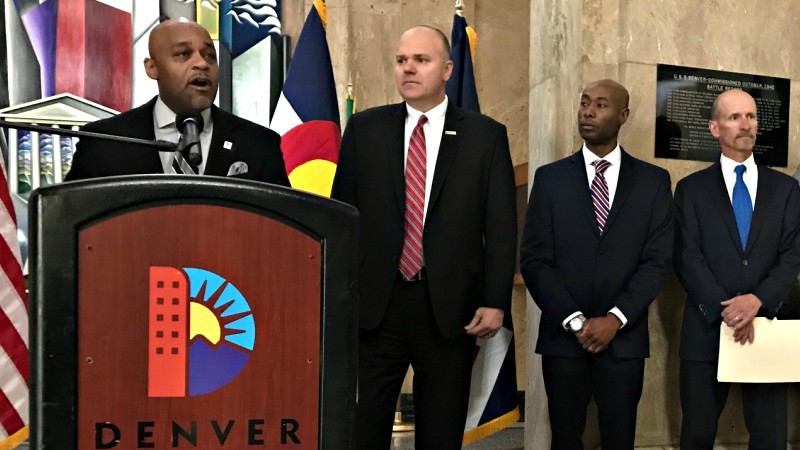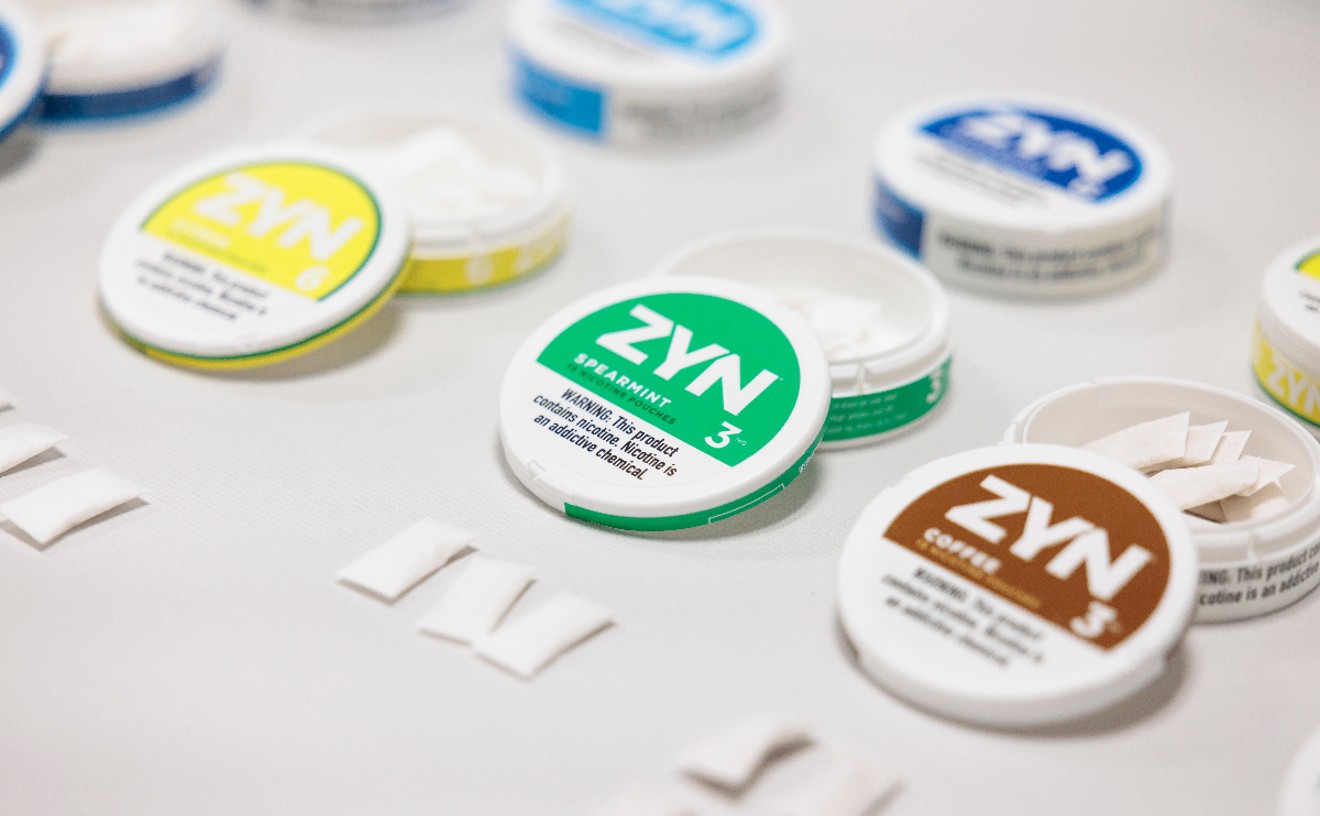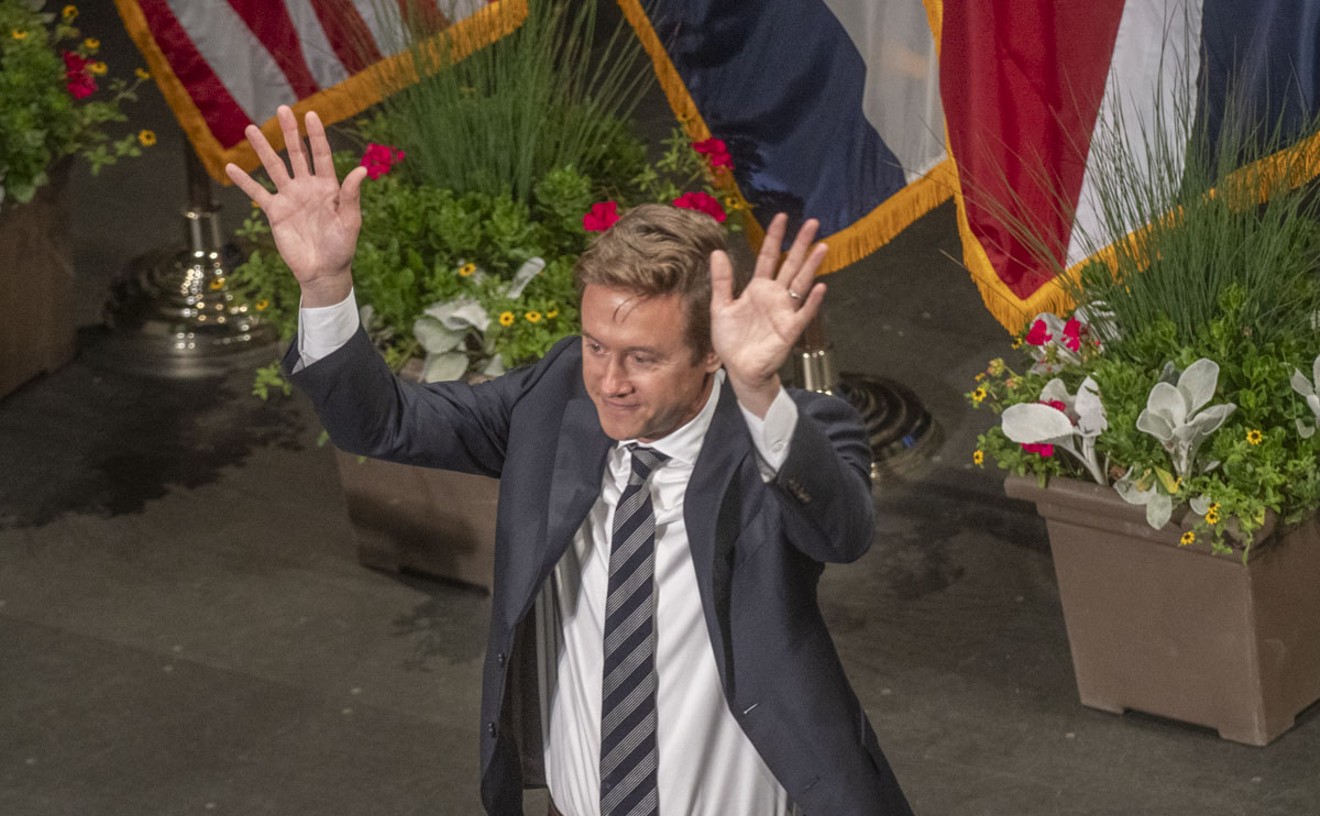The goal, Hancock said, is that under the PID, inquiries will be "done quickly and with the interest of transparency and integrity."
The new division will be directed by Eric Williams, a twelve-year veteran of the FBI who was named the Department of Public Safety's deputy director in June. And consulting for the project on a contract basis is Bob Troyer, who recently stepped down as U.S. Attorney for Colorado.
In speaking to attendees of the announcement event, held on the second-floor rotunda of the Denver City and County Building, Troyer quipped, "I'm very excited to be speaking to this large a group and not be talking about marijuana."
Westword reported last month about an online job listing for a "Director of Internal Affairs." At the time, Denver Sheriff Department communications director Daria Serna, corresponding via email, confirmed that the position was civilian in nature and would take on responsibilities previously handled by the DSD's Internal Affairs Bureau.
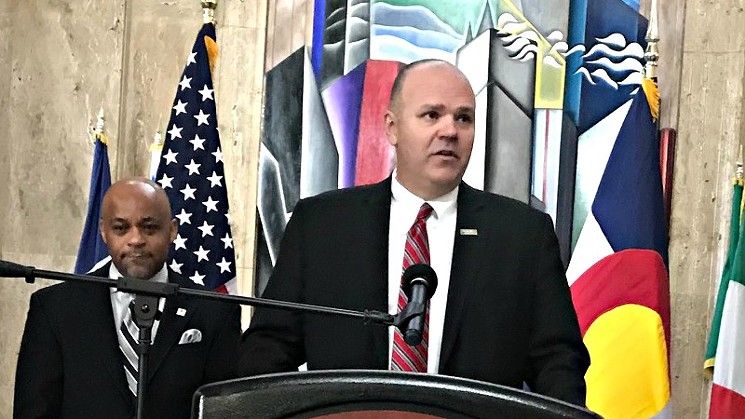
Executive Director of Public Safety Troy Riggs detailing the new division as Mayor Hancock looks on.
Michael Roberts
In his remarks, Hancock talked about feedback from members of the public as well as Denver Sheriff Department personnel about the inadequacies of the way misconduct complaints are currently being handled before handing off to Executive Director of Public Safety Troy Riggs, who explained the genesis of the division.
Riggs said that in February, shortly after being hired, he sat down with Hancock to discuss the challenges ahead, and among the topics they tackled was the discipline process for law enforcers in the city. Further conversations took place involving community members, DSD employees and Independent Monitor Nicholas Mitchell, whose office recommended civilianizing of the investigations in its scathing March report about the in-custody death of Michael Marshall.
Along the way, Riggs discovered that the average investigation into a misconduct complaint involving a member of the sheriff department took 239 days, as compared to ninety days for the Denver Police Department. Because of the DPD's greater efficiency, the Public Integrity Division will initially focus solely on sheriff department inquiries, though Riggs didn't rule out the possibility that police department matters might eventually shift to its control, too.
He also stressed that "for discipline to be effective, it must be timely."
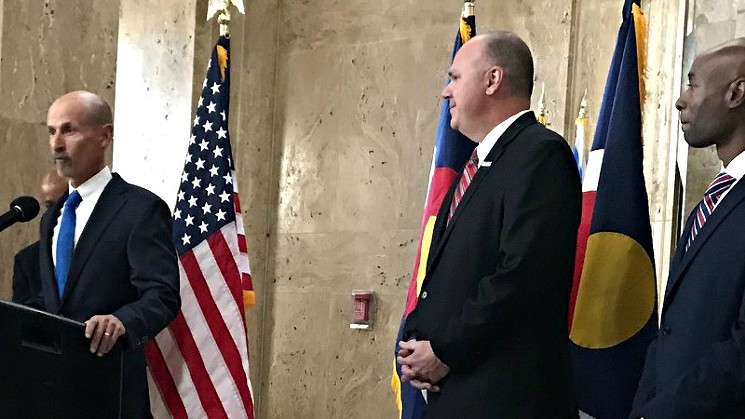
Troyer talks about his role in the launch of the new division under the gaze of Riggs and Williams, who'll head the new agency.
Michael Roberts
He also emphasized that the division would not diminish the responsibilities of Denver Sheriff Patrick Firman. But while Firman stood with the other speakers at the event, he didn't take the microphone himself.
Williams, for his part, kept his remarks brief, sticking mostly to saying that he looks forward to working with Riggs and others in putting the Public Integrity Division together, and Troyer struck a similar tone.
Specifics were few, but Riggs promised that the public would be kept abreast of all developments — and in answer to a question from another attendee, anti-gang advocate Reverend Leroy Kelly, he confirmed that the community would have plenty of chances to weigh in, too. If he didn't, Riggs joked with the Rev, "I'm sure you'd let me know about it."
Indeed, activists have been calling for civilian oversight of law enforcement misconduct investigations throughout Mayor Hancock's time in office. That he's launching it now — as political rivals are announcing their candidacy for the mayoral election to be held in 2019 and questions continue about when (not if) he's going to confirm his own bid — is probably not coincidental.

